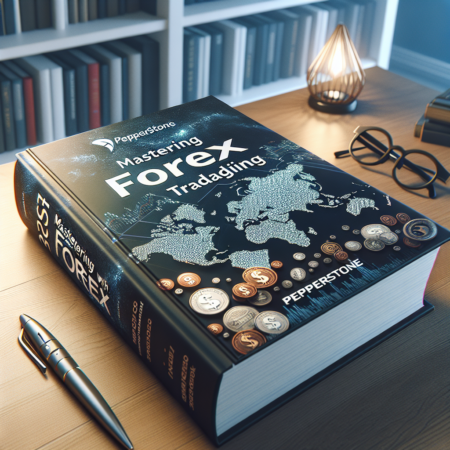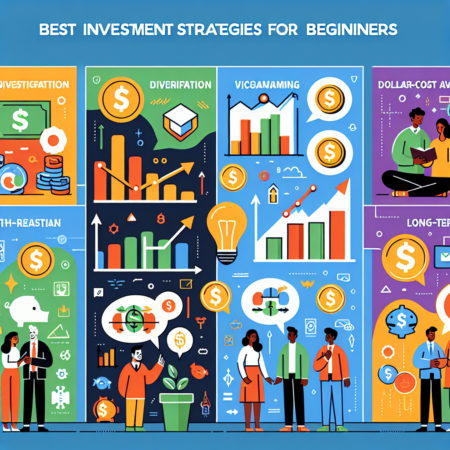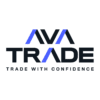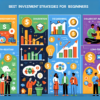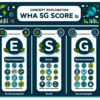Top Resources for Financial Education
In today’s fast-paced financial world, having access to reliable and comprehensive financial education resources is essential for anyone looking to achieve financial independence and make informed investment decisions. Whether you’re a beginner looking to understand the basics or an experienced investor aiming to refine your strategies, the right resources can make all the difference.
Books for Financial Education
Diving into well-regarded financial books is one of the most effective ways to build a strong foundation in financial education. Here are some must-reads:
1. “Rich Dad Poor Dad” by Robert Kiyosaki
This classic book offers valuable insights into personal finance, investing, and wealth-building strategies. Kiyosaki contrasts the financial philosophies of his two “dads” to highlight the importance of financial literacy.
2. “The Intelligent Investor” by Benjamin Graham
Considered the bible of value investing, this book provides timeless advice on investment strategies, risk management, and market analysis. It’s a must-read for anyone serious about investing.
3. “Your Money or Your Life” by Vicki Robin and Joe Dominguez
Focusing on transforming your relationship with money, this book offers a nine-step program to achieve financial independence and lead a more meaningful life.
Online Courses and Certifications
Structured learning through online courses can provide in-depth knowledge and practical skills in financial management and investing.
1. Coursera’s Financial Markets by Yale University
Led by Professor Robert Shiller, this course covers the fundamentals of financial markets, including stocks, bonds, and diversification strategies.
2. Khan Academy’s Personal Finance
A free resource that offers comprehensive lessons on budgeting, saving, investing, and understanding credit. It’s perfect for beginners looking to get started.
3. CFA Institute’s Certificate Program
For those seeking a professional edge, the Chartered Financial Analyst (CFA) program provides rigorous training in investment analysis and portfolio management.
Websites and Blogs
Staying updated with the latest financial news and insights is crucial. These websites and blogs are excellent for continuous learning:
1. Investopedia
A comprehensive resource for definitions, tutorials, and articles on a wide range of financial topics, making complex concepts easy to understand.
2. The Motley Fool
Focused on stock market news, investment advice, and personal finance tips, it’s a valuable resource for both novices and seasoned investors.
3. NerdWallet
Offers tools and advice on personal finance, including credit cards, loans, and investing, helping users make informed financial decisions.
Podcasts on Finance
Podcasts are a convenient way to absorb financial knowledge on the go. Here are some top picks:
1. “Planet Money” by NPR
This podcast breaks down economic concepts and news in an engaging and accessible manner, making it easier to grasp complex financial topics.
2. “The Dave Ramsey Show”
Focused on personal finance, budgeting, and debt reduction, Dave Ramsey provides practical advice to help listeners take control of their financial lives.
3. “BiggerPockets Money Podcast”
Targets individuals interested in building wealth through real estate investing, personal finance strategies, and entrepreneurial ventures.
Financial Tools and Apps
Leveraging technology can enhance your financial planning and investment strategies. Here are some essential tools and apps:
1. Mint
A free budgeting tool that helps track spending, create budgets, and set financial goals, providing a clear overview of your financial health.
2. Personal Capital
Combines budgeting with investment tracking, offering tools to manage both personal finances and investment portfolios effectively.
3. Morningstar
Provides comprehensive investment research, including stock analysis, mutual fund ratings, and portfolio management tools.
Conclusion
Embarking on a journey to enhance your financial education is a commendable step toward achieving financial security and independence. By leveraging a mix of books, online courses, reputable websites, insightful podcasts, and cutting-edge financial tools, you can build a robust understanding of personal finance and investment strategies. Remember, continuous learning and staying updated with the latest financial trends are key to making informed decisions and securing your financial future.
Frequently Asked Questions
- What are the best books for financial education?
- Some of the best books include “Rich Dad Poor Dad” by Robert Kiyosaki, “The Intelligent Investor” by Benjamin Graham, and “Your Money or Your Life” by Vicki Robin and Joe Dominguez.
- Which online courses are recommended for learning about financial markets?
- Courses like Coursera’s Financial Markets by Yale University, Khan Academy’s Personal Finance, and the CFA Institute’s Certificate Program are highly recommended.
- What financial tools can help me manage my budget effectively?
- Tools like Mint, Personal Capital, and YNAB (You Need A Budget) are excellent for tracking spending, creating budgets, and managing finances.
- Are there any podcasts that provide valuable financial advice?
- Yes, some popular ones include “Planet Money” by NPR, “The Dave Ramsey Show”, and “BiggerPockets Money Podcast”.
- How often should I update my financial education resources?
- It’s advisable to regularly update your resources, at least annually, to stay informed about the latest financial trends and strategies.
Disclaimer
The information provided in this article is for informational purposes only and should not be construed as financial or investment advice. It is always recommended to conduct thorough research and consult with a professional advisor before making any investment decisions.



